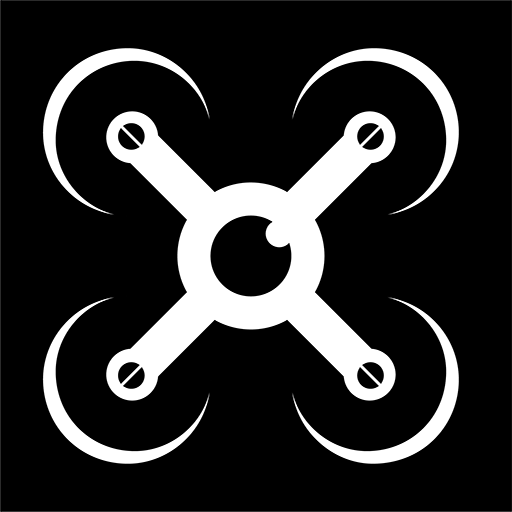Embracing the Soaring Future – My Comprehensive Journey into the World of Drones
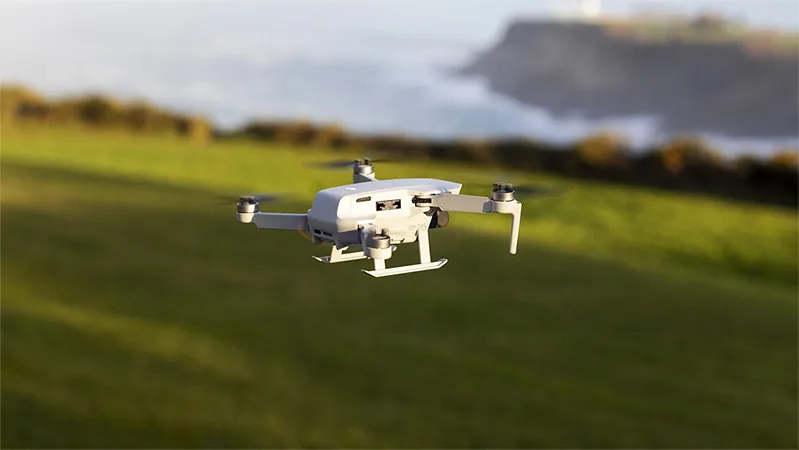
In the fast-evolving landscape of technology, where innovations often redefine industries, few have made as rapid and transformative an impact as drones. These Unmanned Aerial Vehicles (UAVs) have transitioned from their initial military applications to becoming versatile tools that play an indispensable role across various sectors. As I embark on this comprehensive journey into their world, the intent is not merely to observe but to actively engage, learn, and contribute to the burgeoning possibilities of these aerial marvels.
The Swift Evolution
The evolution of drones has been nothing short of remarkable. Originating as military assets, they have undergone a swift transformation, transcending their initial purpose to become versatile instruments with applications spanning agriculture, environmental monitoring, search and rescue operations, and even the futuristic realm of package delivery. This transformation underscores the disruptive nature of drone technology and its potential to reshape industries.
This evolution has not only expanded the scope of applications but has also highlighted their adaptability. Drones are no longer confined to the military domain; they have become integral in diverse tasks, from crop monitoring in precision agriculture to monitoring ecological changes in remote and inaccessible areas. The ability to operate in challenging terrains and provide real-time data has positioned drones as revolutionary tools capable of tackling tasks that were once deemed difficult or impossible.
The Versatility and Importance
Understanding the rapid development of drone technology is crucial in appreciating their importance in revolutionizing how we approach various tasks and challenges. The versatility of drones extends far beyond their initial military applications. Now, they are integral in undertakings ranging from crop monitoring in agriculture to monitoring ecological changes in remote areas. The ability to operate in diverse environments makes them indispensable in industries where human access is limited or hazardous.
Agriculture
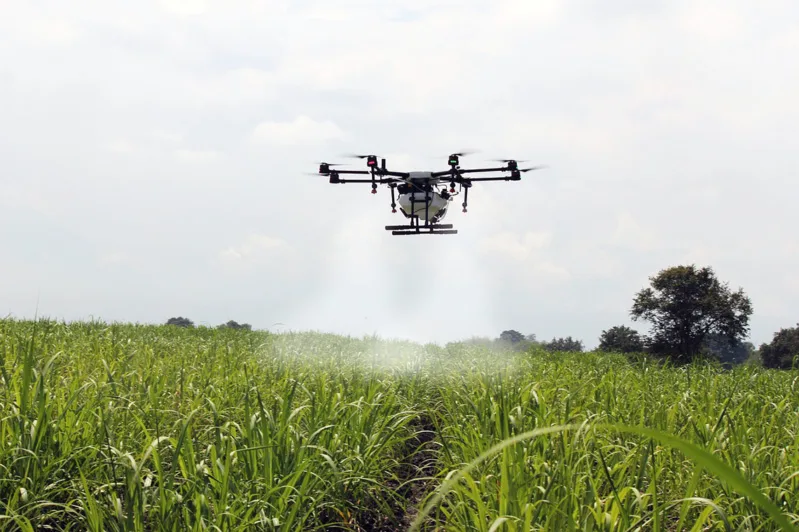
The impact of drones in agriculture is particularly noteworthy. Precision agriculture, empowered by drones, allows for targeted monitoring and management of crops. The vehicles equipped with advanced sensors can collect data on soil conditions, crop health, and pest infestations. This information, analyzed through data-driven approaches, enables farmers to make informed decisions, optimize resource usage, and enhance overall productivity.
Environment
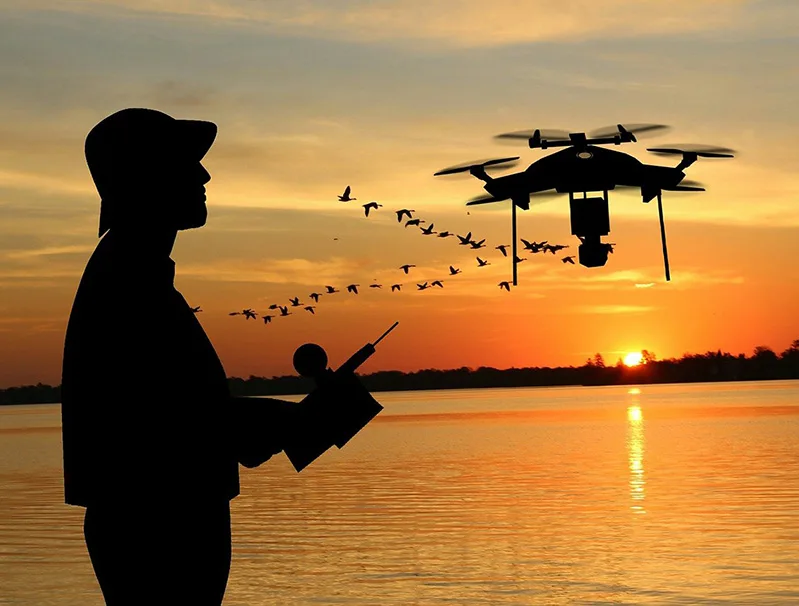
In environmental monitoring, drones offer a unique vantage point, allowing for efficient and accurate data collection in areas with difficult access. They play a crucial role in wildlife conservation, disaster response, and monitoring the health of ecosystems. The ability to swiftly deploy drones in emergency situations, such as search and rescue operations, enhances their value as life-saving tools.
Logistics
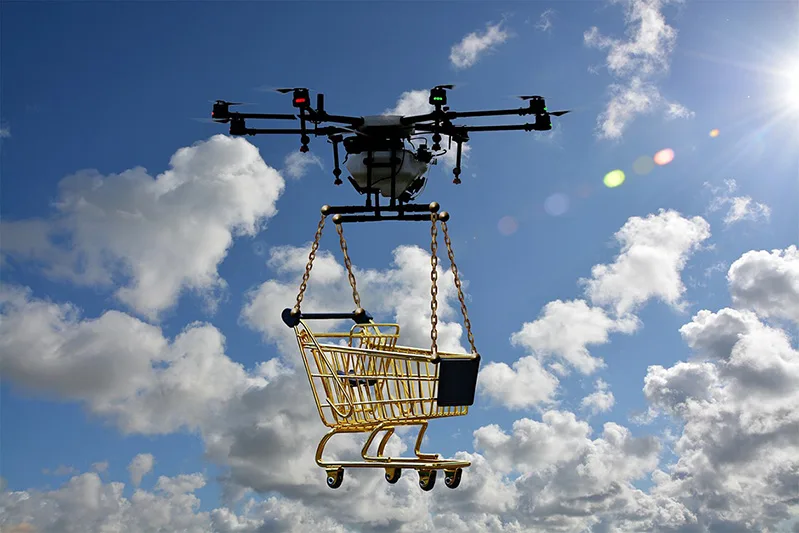
The adoption of drones in logistics, especially in package delivery, represents a paradigm shift. Companies exploring drone delivery services are not only aiming for operational efficiency but also addressing environmental concerns by potentially reducing carbon emissions associated with traditional delivery methods. This intersection of technology and sustainability adds another layer to the significance of drones in modern society.
A Necessity to Learn the Basics of Drones
As the technological landscape continues to be shaped by the integration of drones, learning the basics of UAVs becomes not just a choice but a necessity. It has become essential to recognize the significance of the vehicles in today’s world and stay informed about their design, operation, and underlying technologies. This knowledge forms the foundation for anyone looking to participate in and contribute to the industry.
While embarking on this educational journey, it is imperative to understand the core components of drones. From their propulsion systems to the intricate flight control algorithms, comprehending the mechanics is fundamental. The role of sensors, such as GPS navigation and advanced camera systems, in ensuring precise and effective drone operations cannot be overstated.
Moreover, exploring the various types of drones, including fixed-wing and multirotor configurations, provides insights into their specific applications and operational characteristics. Understanding the distinctions between consumer-grade drones and those designed for industrial or professional use is crucial for making informed decisions regarding their deployment.
The journey into the world of drones also involves delving into the software side of these aerial devices. Learning about the programming languages, protocols, and communication systems that govern drone operations allows for a holistic understanding of their capabilities. Familiarity with software tools used for mission planning, data analysis, and firmware updates is equally crucial in maximizing the potential of drones.
The Fascination with Drone Technologies
The broad spectrum of applications associated with drones, from capturing awe-inspiring aerial footage to contributing to scientific research, has ignited a deep fascination with drone technologies. Beyond the excitement of flying gadgets, the potential for innovation and problem-solving is vast. Delving into this field involves grasping the fundamentals of drone design, flight control algorithms, and the myriad of sensors that empower these flying machines.
Using drones in cinematography has revolutionized how we capture and perceive visuals. Aerial photography and videography, once limited to expensive helicopter or crane setups, have become accessible to filmmakers, content creators, and hobbyists alike. The unique perspectives offered by drones add a cinematic quality to visuals, enhancing storytelling and creative expression.
In scientific research, drones have become invaluable tools for data collection in fields such as ecology, geology, and environmental science. Their ability to access remote or hazardous locations and high-resolution imaging capabilities facilitate precise data acquisition. From monitoring wildlife populations to studying geological formations, drones contribute to the advancement of scientific knowledge.
Understanding the intricacies of drone technologies involves exploring the diverse range of sensors that enhance their capabilities. Cameras, lidar, thermal imaging, and multispectral sensors are just a few examples of sensor technologies integrated into modern drones. Each sensor type serves specific purposes, expanding the potential applications of drones across various industries.
Responsible Learning – Regulations and Ethics in Drone Use
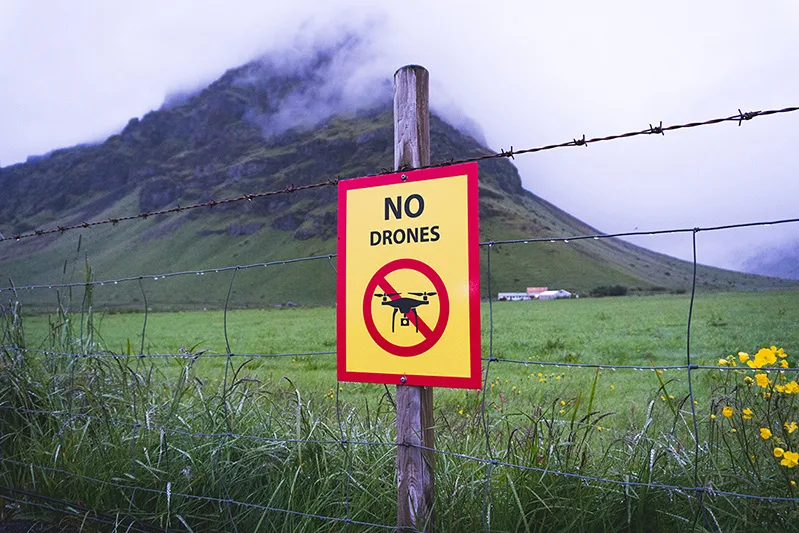
Beyond the technical aspects, responsible learning in the field of drones includes understanding the regulations and ethical considerations governing their use. From GPS navigation to advanced camera systems, each component plays a crucial role in the seamless functioning of these aerial marvels. As I embark on this educational journey, recognizing the need for responsible and lawful integration into various sectors becomes paramount.
Regulations surrounding drone use vary across countries and regions, emphasizing the importance of staying informed and compliant. Familiarity with airspace regulations, flight restrictions, and privacy concerns is essential for responsible drone operation. Adhering to these regulations not only ensures legal compliance but also contributes to the safe and harmonious integration of drones into shared airspace.
Ethical considerations in drone use extend beyond legal requirements. Respecting privacy rights, obtaining necessary permissions for aerial surveys in sensitive areas, and minimizing the environmental impact are crucial aspects of ethical drone operation. The responsible use of drone technology involves a balance between innovation and ethical considerations to ensure its positive contribution to society.
Moreover, understanding the ethical implications of data collection through drones is imperative. As drones capture vast amounts of data during their flights, ensuring the secure handling and protection of this data is essential. Adhering to data protection regulations and implementing robust cybersecurity measures safeguards against potential misuse or unauthorized access to sensitive information.
A Commitment to Finding My Niche
My journey into the world of drones is not solely fueled by curiosity; it’s a proactive effort to find a meaningful niche within this burgeoning industry. Drones are not mere gadgets; they are a gateway to innovation and problem-solving. The commitment is not only to understand their intricacies but to fully harness their potential. This involves mastering flight control algorithms, exploring the latest advancements in industry technology, and identifying opportunities for impactful contributions.
Diving into the intricacies of flight control algorithms opens avenues for optimization and customization. Understanding how drones respond to various inputs and environmental factors allows for fine-tuning their performance for specific applications. Whether achieving precision in aerial surveys or enhancing stability for cinematic shots, a nuanced understanding of flight control is integral.
Exploring the latest advancements in drone technology requires staying updated on industry trends, emerging technologies, and innovative applications. The drone industry is dynamic, with continuous advancements in areas such as battery technology, sensor capabilities, and artificial intelligence integration. Keeping abreast of these developments positions practitioners at the forefront of innovation and opens doors to novel possibilities.
Identifying opportunities for impactful contributions involves strategic thinking and creativity. The application of drones is not limited to existing use cases but extends to uncovering novel solutions to industry-specific challenges. Whether optimizing supply chain logistics through drone delivery or using drones for infrastructure inspection, finding a niche involves aligning technological expertise with real-world problems.
Inviting You to Join the Journey
In this pursuit, I invite all of you who are fascinated with drones and want to explore their limitless possibilities. The journey into the world of drones is not solitary but a collective endeavor to push the boundaries of what is achievable. Together, we can unravel the intricacies, navigate the challenges, and contribute meaningfully to this dynamic and evolving field.
Joining this journey is not only about acquiring knowledge but also about actively participating in the community of drone enthusiasts, professionals, and innovators. Collaborative platforms, industry events, and online forums provide avenues for networking, knowledge exchange, and exposure to diverse perspectives within the drone ecosystem.
As we embark on this journey, let’s not only appreciate the technology but also consider the strategic implications and the transformative power drones hold in reshaping industries. Whether you are a seasoned professional or a newcomer, the world of drones offers a vast expanse for exploration and innovation. Join me in embracing the soaring future of drone technology.
To Sum It Up
In conclusion, the journey into the world of drones is a multifaceted exploration encompassing technological understanding, responsible operation, strategic thinking, and a commitment to meaningful contributions. The swift evolution of drones, their versatility in applications, and the constant advancements in technology make this journey both exciting and challenging.
Learning the basics of drones is foundational, but the fascination with their technologies and the commitment to finding a niche propels this journey forward. Responsible learning, encompassing regulations, and ethics, ensures a harmonious integration of drones into society. The invitation to join this journey is extended to those seeking both knowledge and active participation in the ever-expanding realm of drone technology.
As we navigate the complexities of drone technology, let’s remain mindful of the transformative potential it holds. Embracing the soaring future of drones is not just about flying machines; it’s about shaping a future where innovation, responsibility, and collaboration converge to create positive impacts across industries and communities.
Affiliate Programs
In full transparency, our website participates in affiliate programs. By clicking on carefully chosen affiliate links to reliable suppliers, you may support us through a small commission if you make a purchase. This commission helps sustain and enhance the site, ensuring a continuous flow of top-notch content and resources in the dynamic realm of drone technology. Your support is genuinely valued, contributing to our shared journey into the soaring future of drones.
